Making mas: Becoming a baby doll
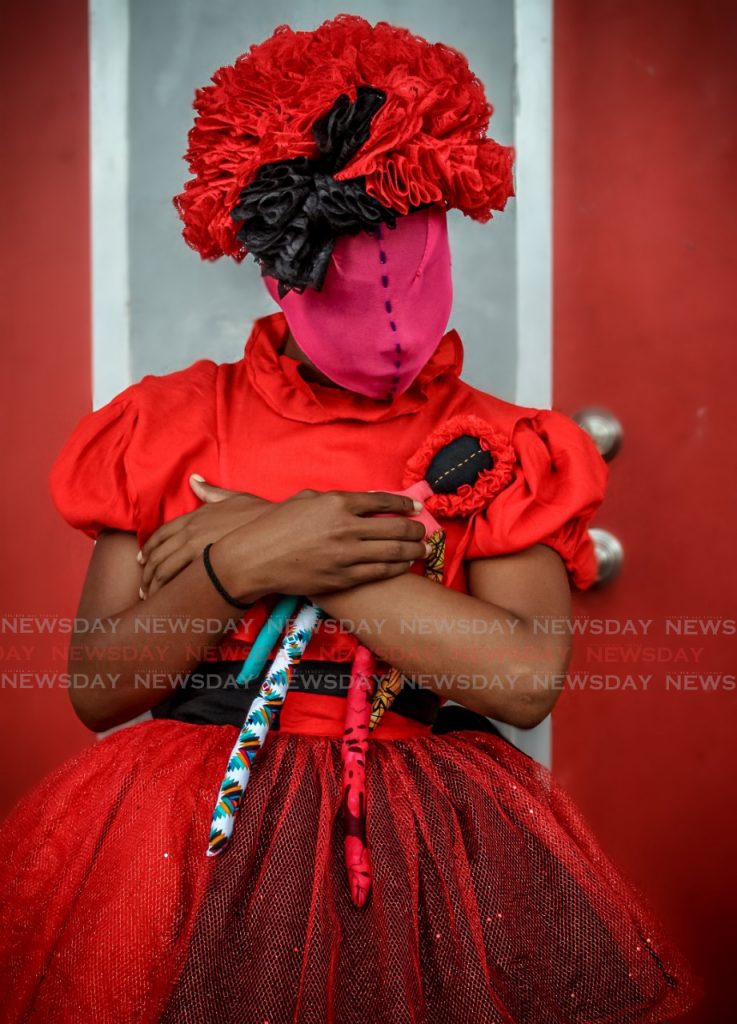
The challenge.
Get my "baby daddy" to pay for milk for his "child", who I was gently rocking in my arms on a sunny day in Belmont.
Under normal circumstances, this may have presented a problem. The major impediments being, I don't have a child or even a potential baby daddy. But these weren't normal circumstances. This was an element of playing mas as a baby doll and I was determined to play it well.
It's likely that you've seen a baby doll mas character before, and probably laughed as she accused someone of being her child's father, finger pointing or hand outstretched, demanding support.
The first time I took proper notice of the character was six years ago during the Canboulay re-enactment that takes place on Piccadilly Street, Port of Spain every year on Carnival Friday.
I observed a brown-skinned woman, wearing frills and a bonnet, her eyes covered by a mask. I watched mesmerised as she walked up to a white man, who I suspected was a tourist and said, "You! You is mih baby fadda."
I looked at the man's reaction, a mixture of surprise and discomfort. I felt the same as thoughts of what this scene represented in terms of slavery and the relationship between slave-owners and their illegitimate, mixed offspring competed with race issues and abandonment in my brain. I have been fascinated by baby dolls ever since.
The character, for all it's frills, tulle skirts and pretty bonnets is an emotional one to play. On the surface, the baby doll is both mother and child and according to Makeda Thomas, bandleader of the Belmont Baby Dolls, playing the character is an exploration of issues ranging from teenage pregnancy to holding men accountable for family life.
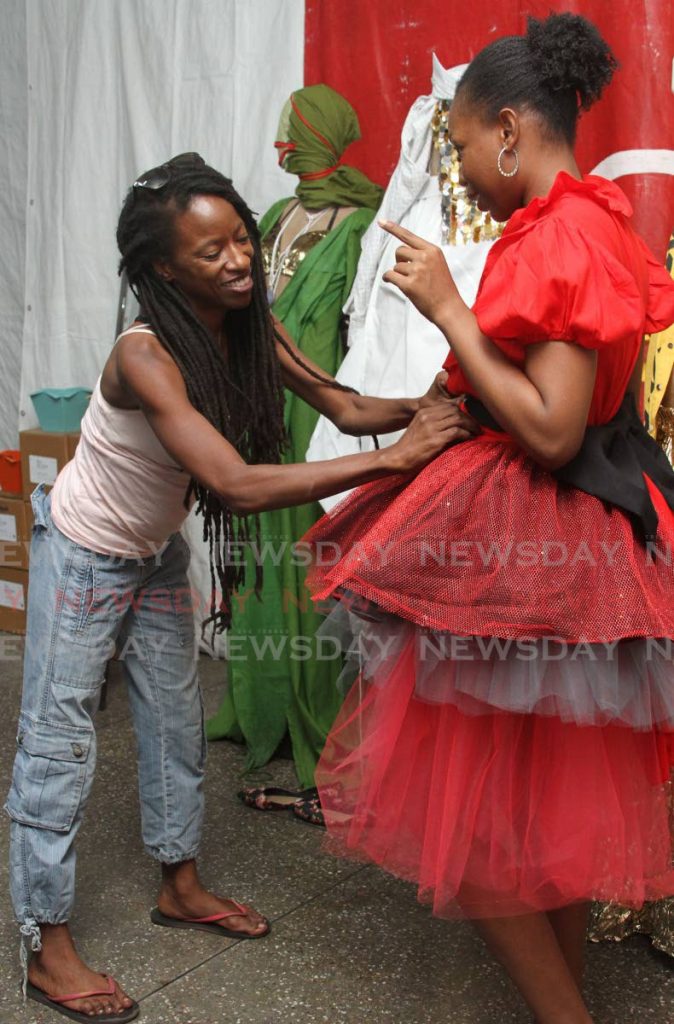
Belmont Baby Dolls made its debut in 2019, with the presentation Carnival Babies. This year its presentation is Spirit Dolls, a collaboration with visual artist Brianna McCarthy. Thomas said Spirit Dolls is less about what a baby doll looks like and more about what it can do. And although it is less about aesthetic, the actual costume is bold in colour, with delicate lace, flouncy tulle and a bright mask that I found both beautiful and unnerving.
When dolls speak
For Thomas, the idea of playing the baby doll was something that evolved over a decade.
"In my work as a dance artist, one of my focus is on black feminism, and so as someone who is constantly thinking about that it is naturally the most powerful of the traditional mas characters to play.
"It allows us to think about our relationships with our mom, our sisters and best friends and ourselves. It allows us to, if you read it a different way, think about how we hold accountable our partners for the families we create.
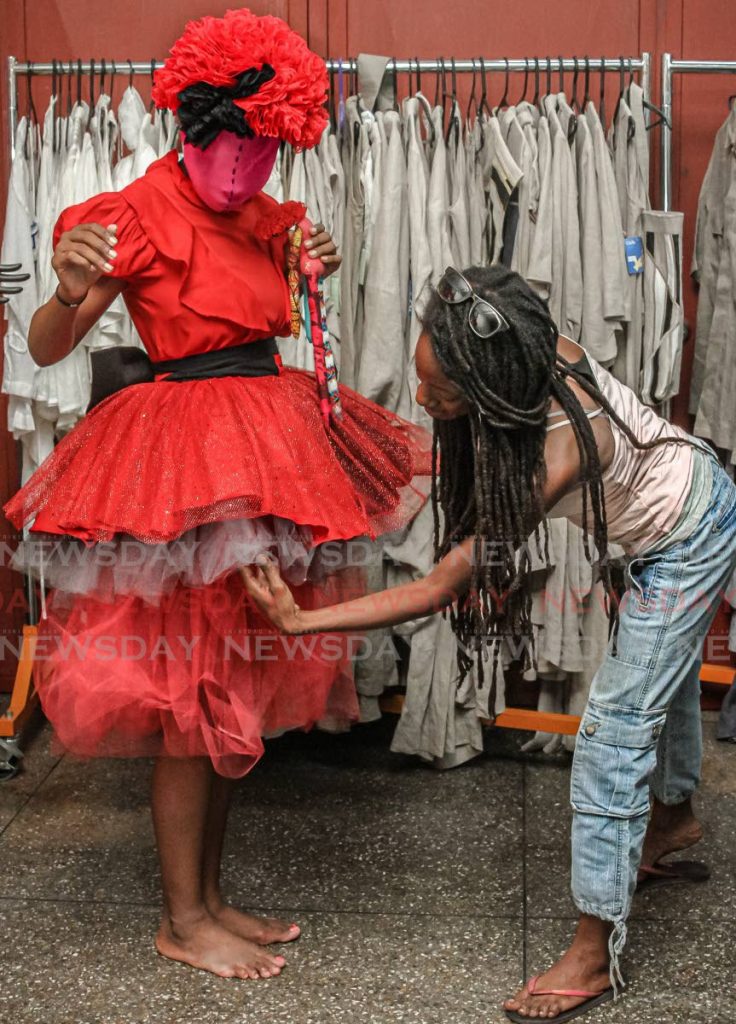
"If you read it differently, it's about how we take control of our sexuality and reproductive health. So it is a mas that can do a lot for women, in allowing them to think about themselves and how they function in society."
Thomas said while the baby doll character stood out to her for those reasons, when observing it being portrayed she felt it was played pitifully. More as a parody and less as a statement or conversation.
"When I did see women play it, it was parodied, like, 'Go from here, I am not your child father. Move from here girl.' It was described or talked about as a begging mas and I don't connect to that because even in that begging you are being held accountable for being a child's father, there is something deeper happening and I was interested in the deeper thing."
The deeper thing Thomas saw was conversations about race, gender, the breakdown of the social structure, the breakdown of family, sexual health and motherhood. She said there is a surplus of themes as the mas can be interpreted in different ways.
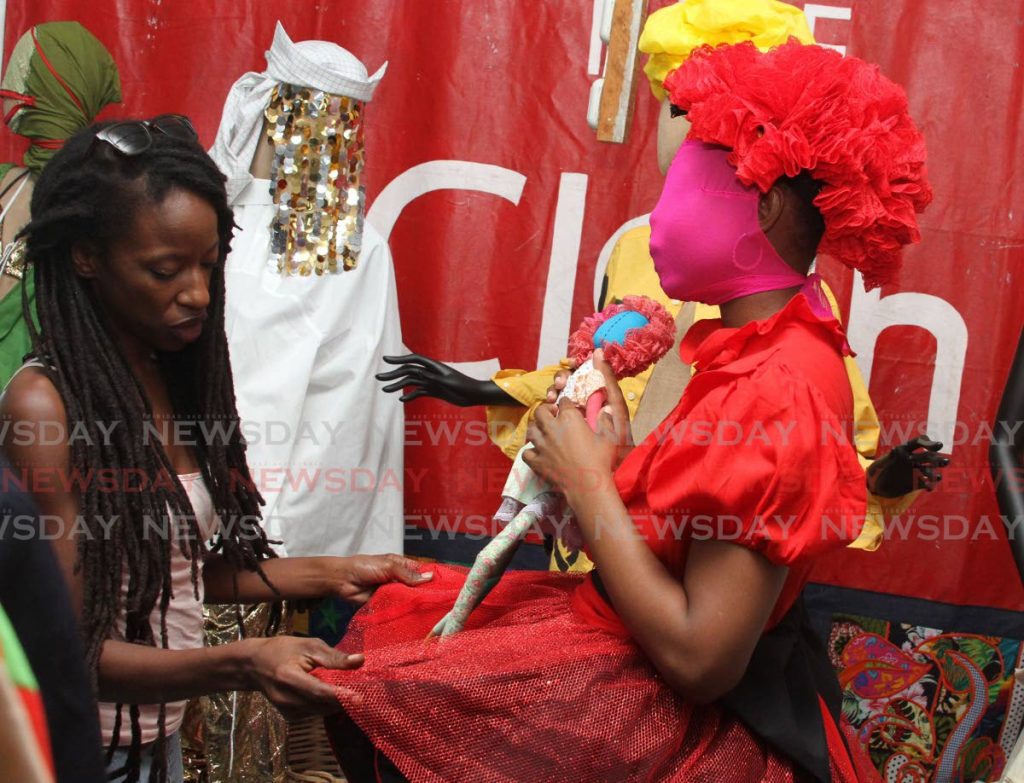
"It also means something different when a man plays it and we also respond to it differently. I actually had to hold a man's hand to keep him safe because if he is holding a woman's hand, even though he is wearing a dress, he is okay but don't let him wear that on his own accord, then it is dangerous." Thomas' early memory of baby dolls, interestingly, is the mas being played by men.
This year, the band isn't only focused on the interpretation of the character but also intentions. Each masquerader will create their baby doll, set their intentions and base their costumes on the dolls. It's a very hands-on mas to play.
You is my chile fadda
While I didn't go through the process of making my own baby doll or setting intentions, Thomas did invite me to play the mas using a costume she loaned and a baby doll to match. She helped me get ready, first assisting with the dress, then adding layers of tulle and the lacy bonnet. Once I looked the part, it was time to play it as well. We walked out onto Erthig Road in Belmont and spotted a group of unsuspecting men gathered near a corner, chatting.
"You don't have to talk," she said. "But your goal is to get one of them to give you money to buy milk for your baby."
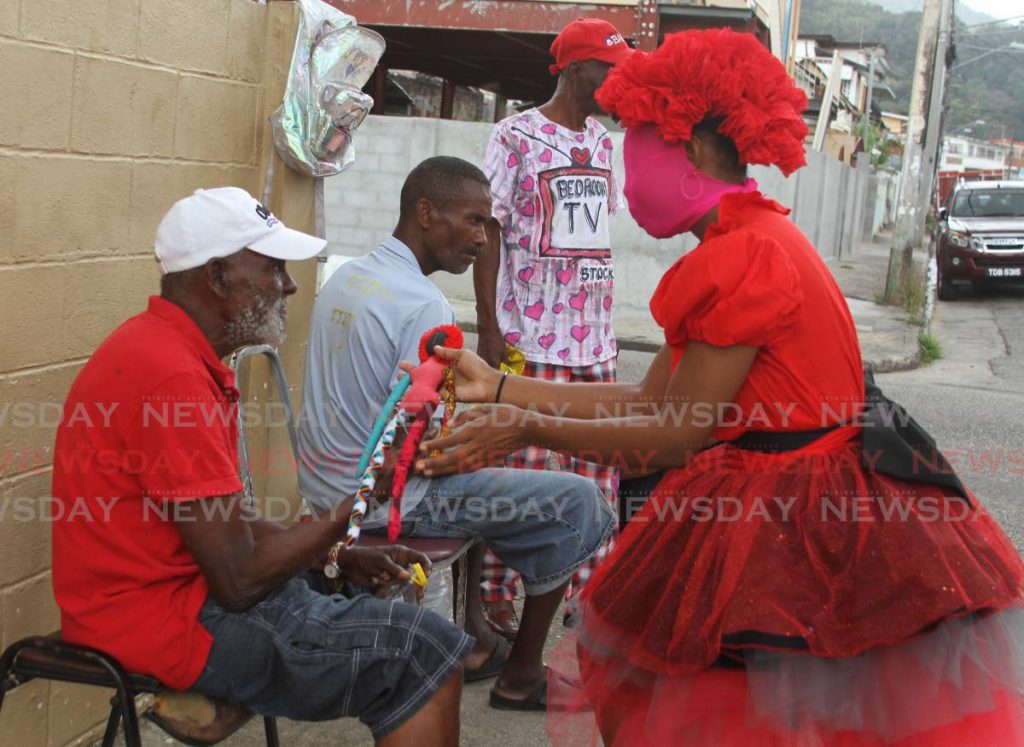
I looked at the doll in my hand, imagining the consequences of failure and committed to my task. I imagined the women, for whom this was one of few choices to ensure the well-being of their child. Then I walked across the street and straight toward an older gentleman sitting on the corner. Not saying a word, I pointed at him, frowning. I pointed at the doll and tilted my head.
"What happen? What you want?" he asked.
I pointed at the doll again, this time bringing it closer to his face.
"That's your baby?" he asked. "You want money for milk?"
I nodded.
"That's not my child," he responded.
Gesturing wildly, I tried to convince him otherwise, sometimes feeling frustrated by his denials.
I moved from him to his friends as they all offered excuses. One told me he would buy milk for the baby at the end of the month. Another said he had no money, I should come back. The first insisted that the doll couldn't be his child.
It did not escape me that these were all excuses given to women every day.
Finally, I saw a man walking up the street and decided he looked a little more like a responsible "child father."
He was resistant at first, attempting to run away, but I somehow managed to gesticulate the seriousness of the situation. He gave me a dollar. Clearly, he had no idea of the cost of milk and diapers, but I had accomplished my goal. I had held him accountable and now I could feed my baby.
The baby doll character proved to be intensely emotional, leaving me very aware of societal issues. It's surprising that I felt that way during one of the happiest festivals in TT, but then Carnival has always been deeply rooted in societal issues, and traditional characters like the baby doll are at the centre of these issues.


Comments
"Making mas: Becoming a baby doll"